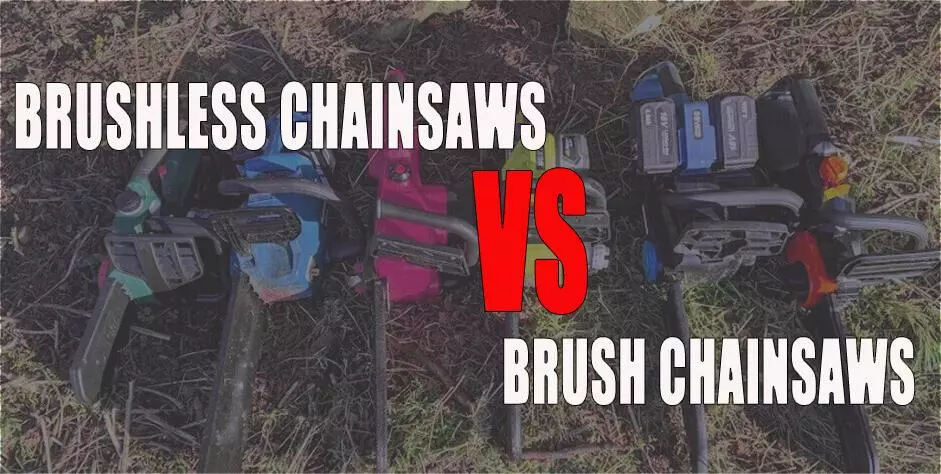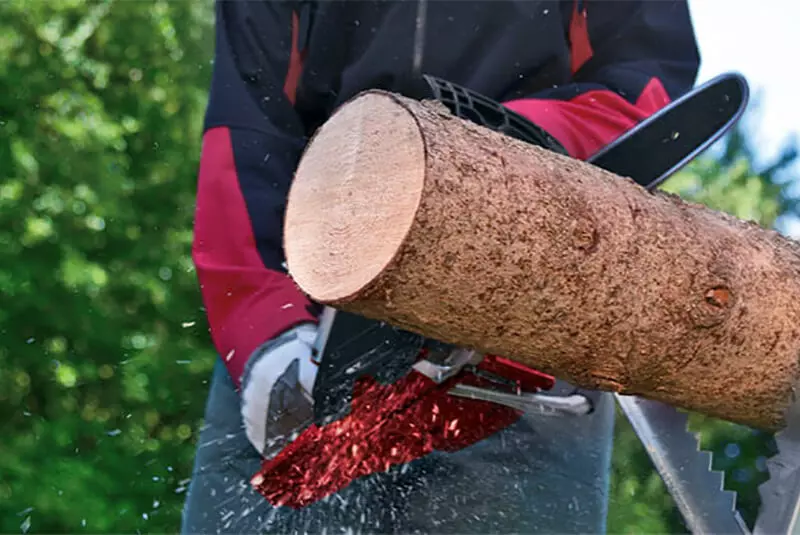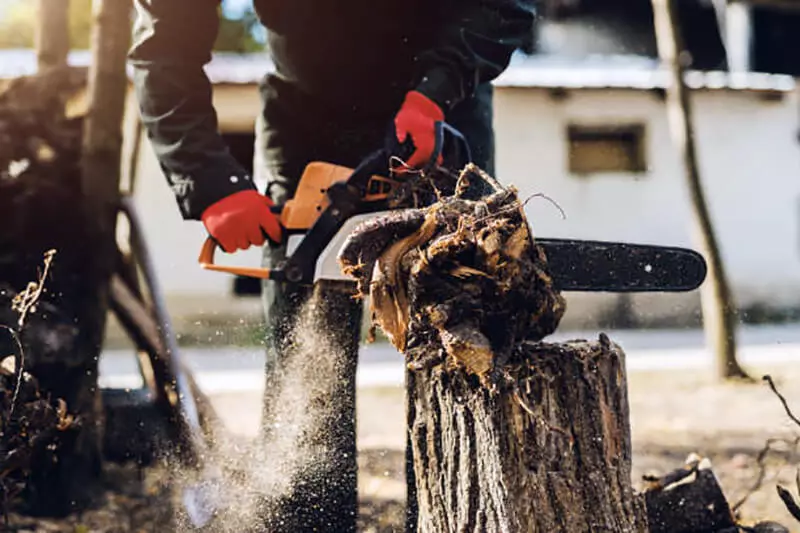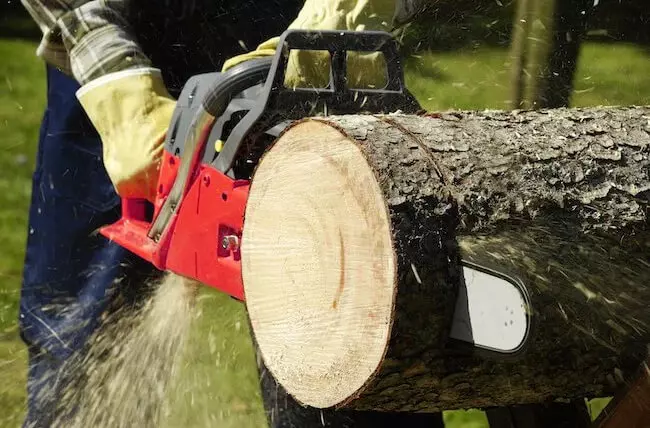24Jan 2024
table of contents

The power of the rotating blade and the compact design make the chainsaw an indispensable tool capable of handling heavy jobs that a hand saw cannot handle. Chainsaws run different types of motors–brushed and brushless, both of which drive the core of chainsaw and generate the required power. However, their different motors can greatly affect the performance, efficiency and life of a chainsaw. Due to their simple design and cheaper initial cost, have long been the preferred choice for chain saws. Brushless chainsaws, on the other hand, are a new direction. The benefits they bring include more power, less maintenance and greater efficiency.
in this article, BISON delve deeper into differences of brushed and brushless chainsaw motors. We will examine how each chainsaw motor works, the advantages and disadvantages to each, and conduct a comparative of their performance.
Deciding which type of electric chainsaw is better for your purchasing needs? Will a brushed or brushless motor give you a competitive advantage in your chainsaw mission? BISON invites you to continue reading!
To fully grasping the differences between brushed and brushless motors, it is importable to understand how both types of motors work.
Brushed motors are so named because of the carbon "brushes" we find in their mechanical design. The operation of a motor is simple: Electric current passes through these brushes, which are in physical contact with the rotor (also called the armature). This interaction creates a magnetic field, which creates torque, causing the motor to rotate.
The primary benefit of brushed motors is their cost-effectiveness. Having a considerable history, their production process leverages well-established and easily comprehensible manufacturing techniques. This simplicity means a less complex design and makes it easy for most people to use and repair.
However, brushed motors also have some disadvantages. Interaction between the brushes and the rotor in a brushed motor introduces friction, which can subsequently cause wear and tear. Over time, this friction can result in diminished efficiency, necessitating routine upkeep or potentially the replacement of the brushes. This friction also produces heat, which, when using the chainsaw for prolonged durations, can negatively impact its overall performance and longevity.

In comparison, the working principle of brushless motors is slightly more complicated. Instead of using brushes, they utilize a combination of electromagnets and sensors to control the rotation of the rotor. No physical contact means friction is significantly reduced.
This design has several benefits. Brushless motors exhibit a marked increase in efficiency over their brushed counterparts, enabling a more effective transformation of electrical energy into mechanical work. This means higher chainsaw performance, longer runtime and minimal heat loss. Subsequently, noise output is also reduced due to non-contact operation. In terms of maintenance, the lack of wearing parts such as brushes can extend the service life of the chainsaw.
Still, brushless motors have their drawbacks. Their initial cost is usually higher due to complex electronics and manufacturing processes. Complex electronics also mean potential repair situations may be more complex and require professional help.

Chainsaw motors vary in terms of power and efficiency, durability and maintenance, or comfort related to vibration and noise. Below we conduct an in-depth comparative analysis of these key factors.
When it comes to torque and cutting power, both brushed and brushless chainsaws are serious contenders. However, brushless motors are often overlooked due to their superior energy efficiency. They convert more of chainsaw's input energy into slicing power, significantly improving chainsaw's performance. This improvement can speed up your work pace and even let you tackle larger projects with ease.
For those who rely on cordless chainsaws, energy efficiency is an even more important aspect. The brushless motor provides longer runtime per battery charge and eliminates charging interruptions - a perfect feature for areas with heavy workloads or where charging facilities are scarce.
Longevity and upkeep needs are crucial factors to bear in mind when selecting a reliable chainsaw. Brushless motors surpass expectations in this regard as they don't contain brushes, which often degrade over time in brushed motors. This absence of wear and tear not only prolongs your chainsaw's lifespan but also shelters you from constant maintenance tasks. Unlike chainsaws with brushed motors, which involve replacing the brushes after particular usage periods, those equipped with brushless motors evade such routine care. This attribute makes brushless chainsaws a worthwhile consideration for those in search of a low maintenance tool.
Anyone who has used chainsaw knows that vibration and noise often lead to fatigue and discomfort. Here again, brushless chainsaw comes into play. Due to reduced friction, they run significantly smoother and emit less operating noise. Minimal vibration reduces user fatigue and provides a noticeably comfortable grip, allowing for prolonged use without discomfort.

Key factors come into play when it comes to determining the right chainsaw to purchase.
The main consideration when choosing between brushed and brushless motors is the nature and frequency of expected use. For light tasks like pruning small trees or occasionally chopping firewood, a brushed electric chainsaw may be perfect for you. Its lower upfront cost may make it a more advantageous option for infrequent use.
Alternatively, if you find yourself transitioning from infrequent, minor tasks to regular, intensive cutting jobs, investing in a brushless chainsaw motor could be more advantageous. Despite a higher initial cost, their remarkable performance, extended longevity, and reduced upkeep expenses render them a more economical choice over an extended period.
For demanding tasks, brushless chainsaw have higher power output and better energy efficiency, providing efficient, smooth operation, saving you time and energy.
If battery life is an issue - especially considering cordless, battery-powered models - brushless chainsaws offer superior energy efficiency, offering longer run times so you can get more done per charge.
A chainsaw is more than just a motor and blade combination; Other attributes can significantly impact the user's experience. The weight and ergonomics of a chainsaw are directly linked to operator fatigue and control - a lighter model or one featuring an optimally designed handle can significantly enhance the comfort level during the cutting operation.
The noise and vibration levels of a chainsaw depend largely on the motor type and can affect the comfort of the user and the peace of the neighbours. As we've discussed, brushless motors generally run smoother and quieter.
Finally, warranty and brand reputation cannot be ignored. Brands that offer reliable customer support and warranty conditions emphasize the quality of their products, thereby increasing purchaseer confidence. The experiences of other purchasers can also provide valuable insights.
We explore the important differences, benefits, and purchasing considerations for brush vs brushless chainsaws. Brushed motors offer the traditional advantages of reliable operation and simple design, such as affordability, simplicity, and familiarity. As for brushless chainsaws, the benefits include superior power and efficiency, reduced noise, and smoother operation, ultimately leading to longer service life and minimal maintenance requirements. However, choosing the right chainsaw for you also depends on a balance of project needs and budget constraints. In addition to upfront cost, performance, service life, maintenance requirements, noise and vibration levels, weight, operating and warranty conditions should also be considered.
Based on these considerations, we recommend BISON brushless chainsaw to those looking for a performance-oriented, durable chainsaw. BISON brushless chainsaw is powerful and efficient, may be just the solution you are looking for. Feel free to ask for more information about chainsaw. Unlock the power of brushless technology and make your cutting tasks a breeze.
inquiry form here
BISON BLOG, All the latest news and views from Bison Machinery.